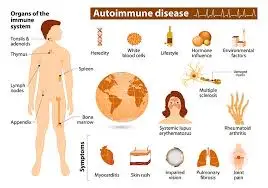Severe diseases are medical conditions that can significantly impact health, quality of life, and even survival. They often require intensive medical treatment and management. Here are some examples of severe diseases:
1. Cancer

– Characterized by the uncontrolled growth and spread of abnormal cells.
– Common types include breast cancer, lung cancer, and leukemia.
– Treatment may involve surgery, chemotherapy, and radiation.
2. Heart Disease

– Includes conditions like coronary artery disease, heart failure, and arrhythmias.
– Can lead to heart attacks, strokes, and other serious complications.
– Risk factors include hypertension, high cholesterol, and lifestyle habits like smoking.
3. Chronic Obstructive Pulmonary Disease (COPD)

– A group of lung conditions that cause breathing difficulties, including emphysema and chronic bronchitis.
– Mainly caused by smoking or long-term exposure to lung irritants.
4. Diabetes (Type 1 and Type 2)

– Affects the body’s ability to regulate blood sugar.
– Can lead to complications like kidney damage, nerve damage, and cardiovascular disease.
– Requires lifelong management of blood sugar levels.
5. Alzheimer’s Disease

– A progressive neurological disorder that causes memory loss and cognitive decline.
– It’s the most common cause of dementia and is currently incurable.
6. HIV/AIDS

– Caused by the human immunodeficiency virus (HIV), which attacks the immune system.
– Without treatment, it can progress to AIDS, where the immune system is severely compromised.
7. Kidney Disease

– Chronic kidney disease can lead to kidney failure, requiring dialysis or a kidney transplant.
– Common causes include diabetes and high blood pressure.
8. Stroke

– Occurs when blood flow to a part of the brain is blocked or a blood vessel in the brain bursts.
– Can cause permanent brain damage, disability, or death.
9. Severe Infectious Diseases

– Includes illnesses like tuberculosis, malaria, and COVID-19.
– Some are highly contagious and can lead to widespread outbreaks or pandemics.
10. Autoimmune Diseases

- Conditions like lupus, multiple sclerosis, and rheumatoid arthritis, where the immune system attacks the body’s own tissues.
- They can affect various organs and cause chronic inflammation.
Severe diseases often require a multidisciplinary approach to treatment, including medication, lifestyle changes, and sometimes surgical intervention.
0 Comments